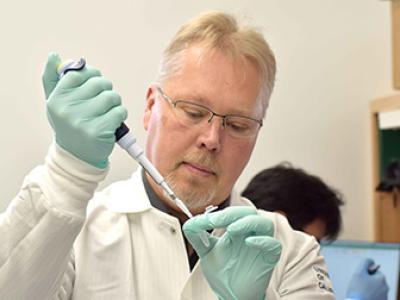Scientists chart course toward a new world of synthetic biology
Genetically engineered trees that provide fire-resistant lumber for homes. Modified organs that won’t be rejected. Synthetic microbes that monitor your gut to detect invading disease organisms and kill them before you get sick. These are just some of the exciting advances likely to emerge from the 20-year-old field of engineering biology, or synthetic biology, which is now mature enough to provide solutions to a range of societal problems, according to a new roadmap released today (June 19) by the Engineering Biology Research Consortium, a public-private partnership partially funded by the National Science Foundation and centered at the University of California, Berkeley.












